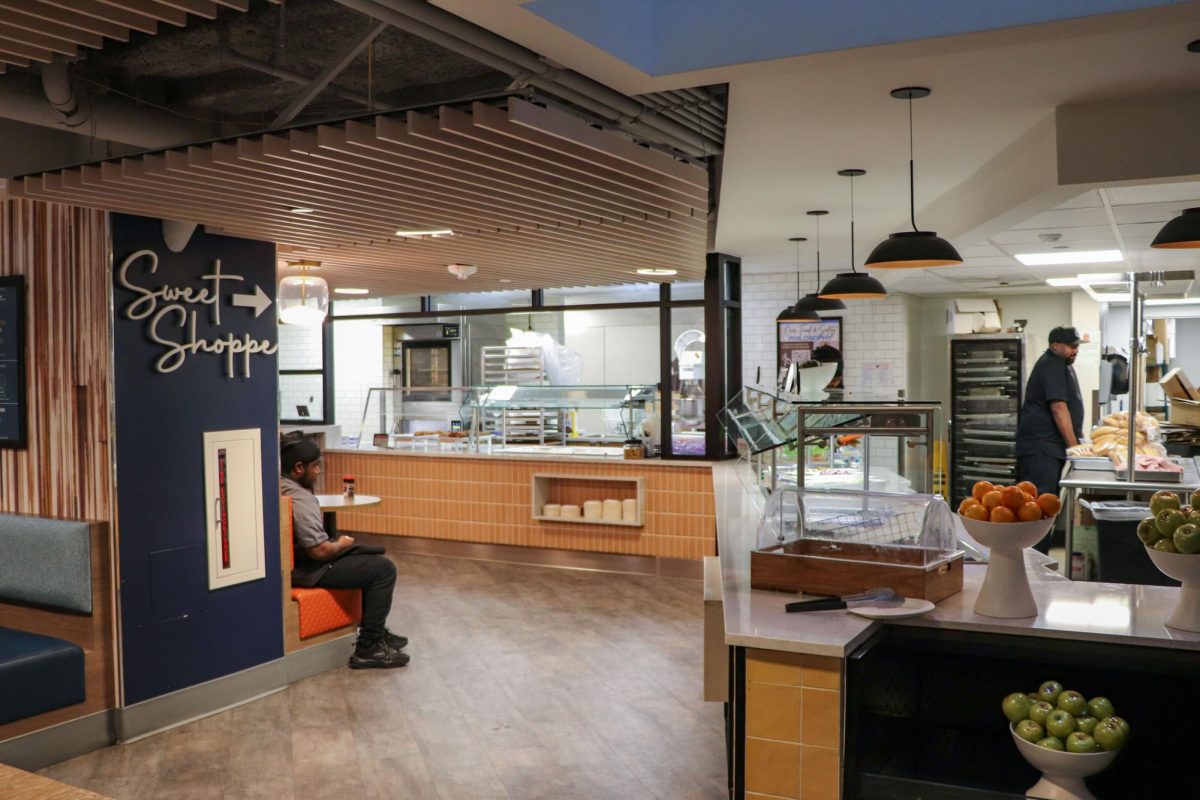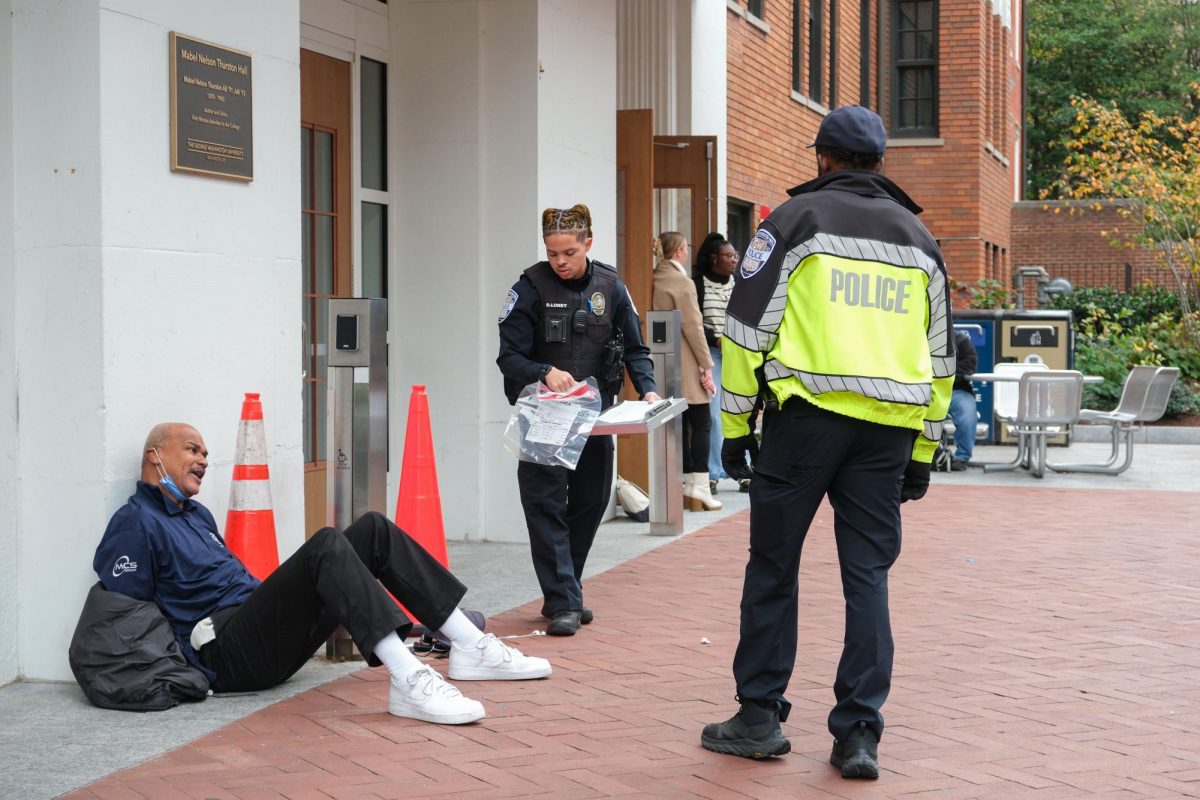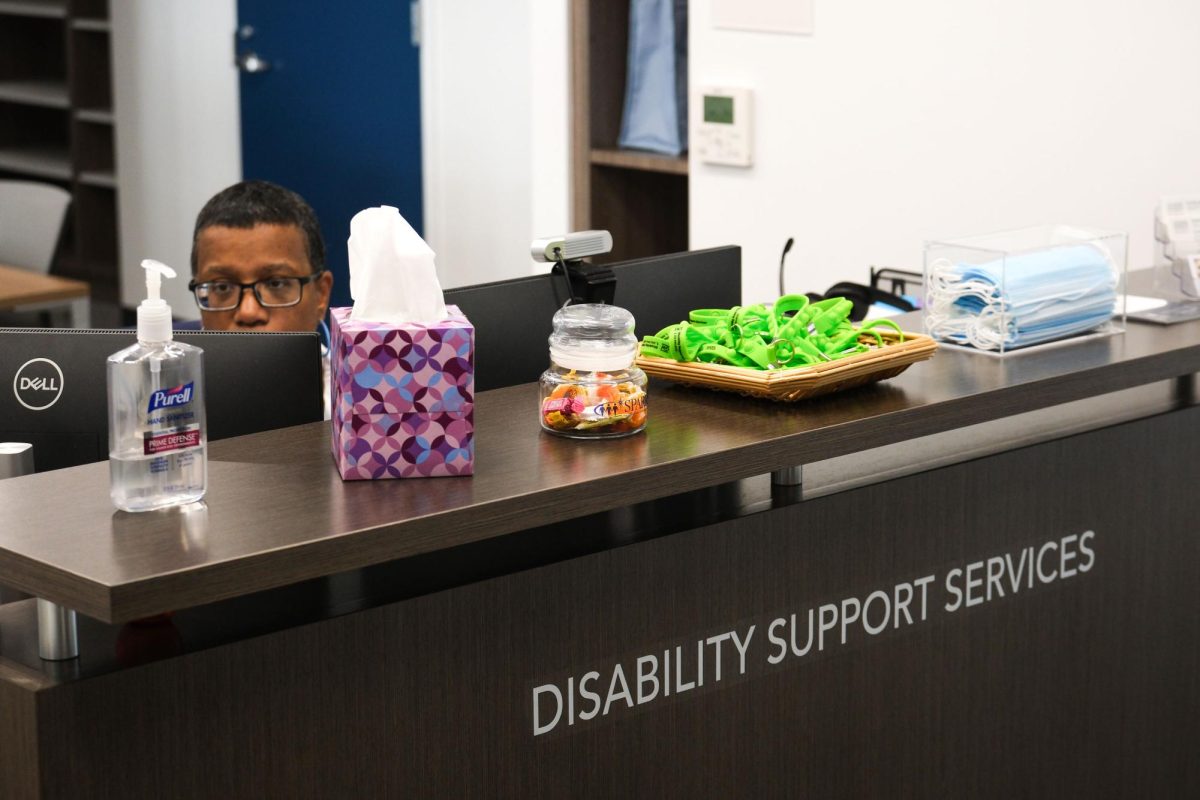A year after the Student Government Association launched a committee to address dining concerns, SGA leaders said they’re tackling student requests for guest meal swipes, accessible online-ordering options and guidance on the use of reusable dining containers.
Jorey Reyes, the chair of the Special Committee on Dining, said the committee is developing proposals with the Student Advisory Panel — a group of students chosen by dining administration who meet with GW dining officials once per month — to discuss implementing guest meal swipes and partnerships with meat substitute companies. Reyes said she has received emails from students that have demonstrated “a real want” for guest meal swipes to allow students’ friends and family to eat in dining halls, but the committee is still waiting to hear back from GW dining “partners” at Chartwells about whether this is a possibility.
“In terms of our coding process, how do you distinguish between a student meal swipe and a guest meal swipe?” Reyes said. “Can you do this both at the same time? Those are kind of the questions that are being talked about.”
Reyes said the SGA and dining officials are also discussing the incorporation of plant-based meat partners into dining halls to offer students a “wider variety” of dishes in dining halls that include alternative dining options for people who don’t eat. Campus dining halls currently offer an array of dishes that incorporate tofu, meatless fish and chicken options. She said GW Dining offers vegan meat options, but a specified plant-based partner would be “more effective” to ensure higher quality vegan and vegetarian dishes.
“We’re going to be able to access that kind of recipe book, that cookbook of ways that they use their plant-based product to have a variety of different recipes, of different options,” Reyes said.
Reyes said the committee plans to table on campus to increase student knowledge about the rollout of the OZZI to-go container program after students expressed not knowing how to use the boxes. Students from the dining advisory panel have hosted tabling sessions in Kogan this semester to help students sign up for the program.
To access the program, students pay a $5 deposit in return for their first token, which they can present at dining halls to receive a reusable box, per the GW dining website. The OZZI boxes can then be used for takeout food from dining halls and returned in exchange for a new, clean box.
“We want to make sure that things are sustainable, but also easy for students, and so that’s definitely something we’ve been working on, is ensuring that students have their questions answered,” Reyes said.
SGA President Ethan Fitzgerald said he attends the dining committee’s biweekly Friday meetings along with SGA Vice President Ethan Lynne and Executive Secretary of Dining Elizabeth Musick to discuss solutions to dining issues they have seen on campus throughout the week, like malfunctions with dining hall coffee machines and slow water dispensers.
Fitzgerald said he has asked University officials to allow students to preorder food online from on-campus vendors like District House through a partnership with the app Grubhub starting this spring. He said he has heard from students that Boost mobile, which offers online preordering, “does not work,” and he wants to instead use Grubhub so students can preorder food more efficiently.
“So if you are walking in between class and only have 20 minutes, you can maybe make that process more efficient by ordering online, and every indication I have received is that that will start in the spring,” Fitzgerald said.
The SGA created the Special Committee on Dining in May 2023 at the first meeting of the 2023-24 term. Former SGA Sen. Dan Saleem sponsored the Dining Examination and Reform Act — which the SGA passed in May 2023 — to launch the committee after a D.C. Health food establishment inspection revealed reports of mice droppings in The Eatery at Pelham Commons.
At the end of the previous SGA Senate term, the body passed legislation to create a permanent dining subcommittee under the existing senate committee on Physical Facilities and Urban Affairs to ensure advocacy from the SGA regarding student dining concerns continued into future senates.
Saleem said he worked with former SGA Sen. Izzy Brophy last year to connect dining committee members with students by distributing surveys to students about dining hall preferences and issues with closures during the fall semester’s final exam period. He said the committee spoke with dining officials last year like Seth Weinshel, the associate vice president business services, to ultimately expand dining hours during finals weeks for future semesters.
“Obviously, dining wasn’t going to get fixed in a year, and Izzy and I, our main goal was ‘Let’s have something that can be a check on administration, that can be an outlet for students to voice their concerns more easily than going straight to administration,’” Saleem said.
Saleem, who serves as one of the student representatives on the SAP and has attended two of the biweekly meetings this year, said he has not seen much “contribution” from the SGA representatives at conversations with dining officials and other SAP members during meetings this year.
Saleem said he has seen “a lot of rhetoric” from the committee but not much action when it comes to dining initiatives like ensuring proper “hygiene” within dining halls on campus.
“We’re seeing Instagram posts and social media about what they plan to do, but I don’t really see a lot of follow up,” Saleem said. “I don’t see talks happening with administration, and when I speak to people like Doug Frazier, Dean Coleman, they too say that there isn’t really a lot of conversation as well as action going on regarding dining.”





